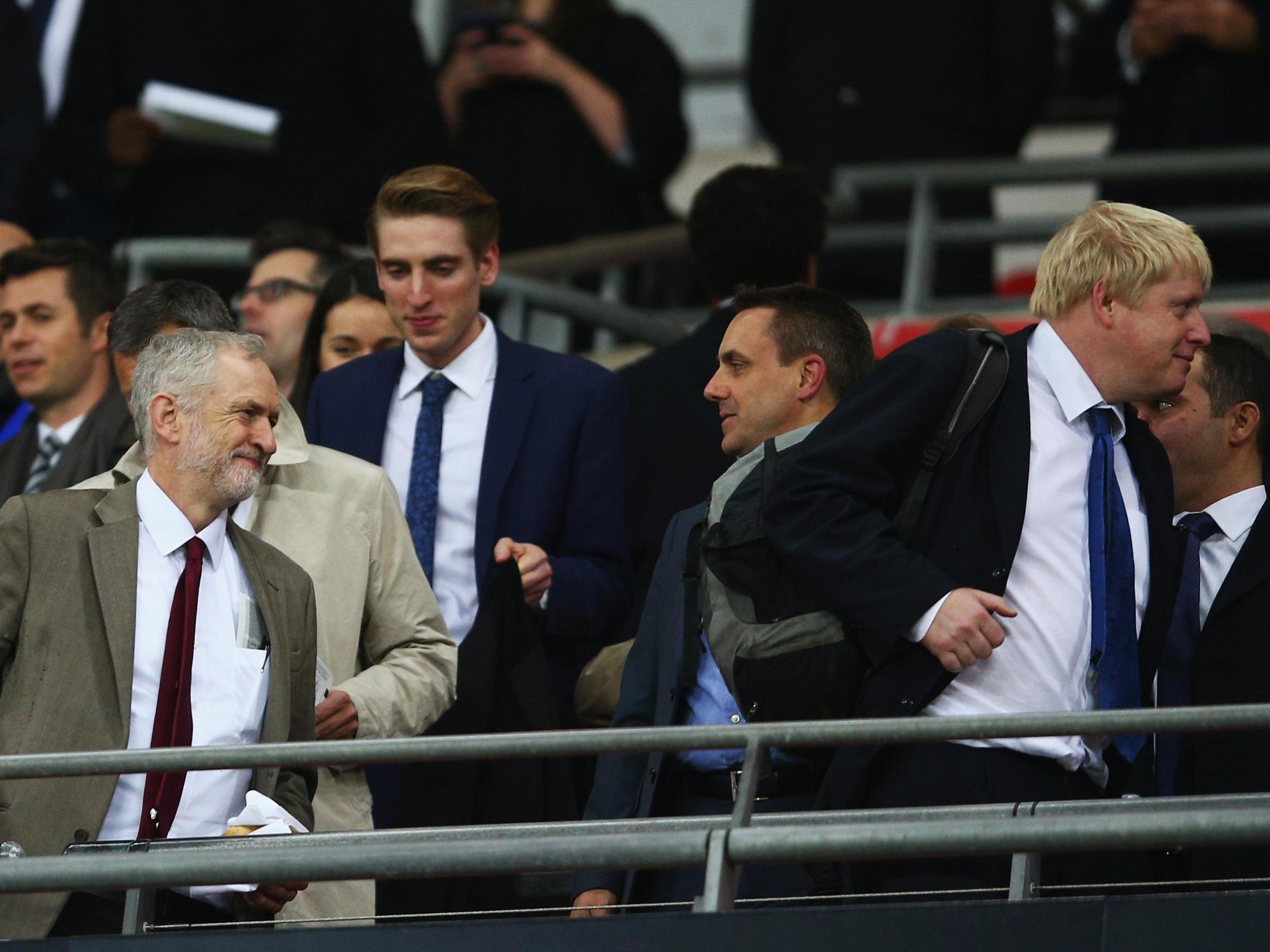Who wins in a general election, Johnson or Corbyn? This summer’s campaigning tit-for-tat will decide who prevails
Inside Westminster: If Johnson is on the campaign trail, Corbyn will mark him man-for-man. The Labour leader will relish a fight against his opposite number


“Let Boris be Boris.” That’s the strategy of our new prime minister. He tried doing serious as foreign secretary; it didn’t work. So he has decided to be himself. It reminds me of “Let Bartlet be Bartlet”, an episode of TV’s The West Wing, in which a fictionalised US president, losing public support and timid about big decisions, takes himself off the leash. In contrast, Boris is going for it from day one.
The rhetoric, bombast and bouncy optimism is his natural self. “It started out as an act. But now it’s him,” said one ally. So we are already in what feels like a permanent election campaign. Boris Johnson began what will be a never-ending tour of the regions in the West Midlands on Friday. Next up: the north. No accident; he has his eyes on Labour voters in both regions. Then Scotland, to stress his commitment to the union.
Although Johnson does not want to be seen as a British Trump, being in campaign mode is out of the president’s playbook. His reshuffle was designed to send a “not Trump” message to liberal voters, as I was told when I learned that Priti Patel was lined up for home secretary. Indeed, there are now more cabinet members from ethnic minorities (six) than the total number the UK has had before (five).
But there were few headlines about the diverse cabinet; Boris rained on the parade of his team by appointing only true believers signed up to a no-deal Brexit. This epitomises his problem: Brexit trumps everything. He can announce and re-announce his focus group-approved policies on police, schools and social care, but they will not erase the Brexit dividing line. He can describe himself as pro-immigration and drop Theresa May’s senseless target but I doubt that will woo liberals worried about no deal or rebuild the Tories’ dangerously low-level support among ethnic minorities.
Boris will get an initial bounce in the opinion polls, probably at the expense of the Brexit Party. So Nigel Farage will be one loser in the dramatically different political landscape – at least in the short term, though he will be back in business if the UK does not leave the European Union on 31 October.
Conversely, the Liberal Democrats will be one of the winners. According to YouGov, the proportion of 2017 Tory voters now backing the Lib Dems has doubled from 7 to 14 per cent since Boris became Tory leader. The Lib Dems are picking up seats from the Tories and Labour in council by-elections. The Boris premiership could boost their prospects in Tory-held target constituencies in the south of England. Jo Swinson, the new Lib Dem leader, has made an impressive start. She managed to grab some media airtime in a week dominated by Boris. Lib Dem tails are up.
In contrast, the liberal wing of the Conservative Party is very down. Despite talk of Boris appointing a broad church, it looks like a narrow no-deal sect. Tory moderates saw his reshuffle as vindictive towards Jeremy Hunt and his supporters. They fear the October cliff edge, and a recession that would destroy their party’s economic reputation for a generation and put Jeremy Corbyn in power.
Another winner in Boris world will be the SNP. The no-deal threat is bound to build support for Scottish independence. However, the SNP will probably need an election and bargaining power under a minority Labour government to secure a second referendum on independence.
What does Boris mean for Labour’s prospects? In the short term, not good. Johnson got the better of Corbyn in their first Commons skirmish, though one Tory MP who backed Boris for the leadership said afterwards: “It might not last. Showmanship will only get him so far. He will need more substance.”
Labour underestimate Johnson at its peril. Team Corbyn will be tempted to declare class war against the Old Etonian head of a right-wing, free-market “government for the few, not the many”. But centrist voters don’t like class war, and Corbyn will need to neutralise Johnson’s charge of being an unpatriotic gloomster. While Boris will attack Labour as a Remain party, Corbyn’s refusal to say Labour would back Remain at an election might not woo back the 26 per cent of Labour’s 2017 voters lost to the Lib Dems, even if some return in the hope of getting the Tories out.
However, Johnson could bolster Corbyn’s position just when there is growing chatter about how long his leadership should last. His attacks on Boris will cheer Labour’s footsoldiers. If Johnson is on the campaign trail, Corbyn will mark him man-for-man; campaigning is his strong suit. The rising prospect of an election will silence the Labour mutterings about Corbyn’s future.
Corbyn will relish a fight against Boris. But, ominously for Labour, Boris wants an election while Corbyn is still in place.
Join our commenting forum
Join thought-provoking conversations, follow other Independent readers and see their replies
Comments